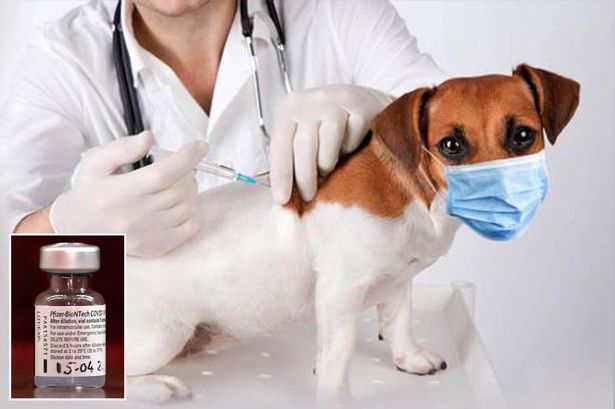People’s beloved pets may need to be vaccinated against coronavirus to prevent the spread of the virus, scientists have said.
Covid-19 can infect a wide range of species, including cats, dogs and mink, experts from the University of East Anglia, University of Minnesota and a research facility at the Earlham Institute have said.
They claim that continued evolution of the virus in animals followed by transmission to humans “poses a significant long-term risk to public health”.
“It is not unthinkable that vaccination of some domesticated animal species might… be necessary to curb the spread of the infection,” the group said.
Last year, Denmark’s government culled millions of mink after it was found that hundreds of coronavirus cases in the country were linked with variants of the disease associated with farmed mink.
The report, in the journal Virulence, claims Covid can infect a wide range of host species, including wild and domesticated species.
But it’s ‘not a risk yet’, one of the boffins explains.
One of the editorial’s authors, Cock van Oosterhout, professor of evolutionary genetics at UEA, said dogs and cats can contract coronavirus but that there are no known cases in which there has been spillback to humans.
“It makes sense to develop vaccines for pets, for domestic animals, just as a precaution to reduce this risk,” he said.
“What we need to be as a human society, we really need to be prepared for any eventuality when it comes to Covid.
“I think the best way to do this is indeed consider development of vaccines for animals as well.
“Interestingly the Russians have already started to develop a vaccine for pets, which there’s very little information about.”
Kevin Tyler, editor-in-chief of Virulence, said: “Cats are asymptomatic but they are infected by it and they can infect humans with it.
“The risk is that, as long as there are these reservoirs, that it starts to pass as it did in the mink from animal to animal, and then starts to evolve animal-specific strains, but then they spill back into the human population and you end up essentially with a new virus which is related which causes the whole thing all over again.”
He said that while mink were culled in Denmark, “if you were thinking about domestic animals, companion animals, then you might think about whether you could vaccinate to stop that from happening”.
He added: “It’s not an obvious risk yet.”
The scientists have called on governments to considered the continued use of strict control measures to reduce the evolution and spread of new Covid variants.



